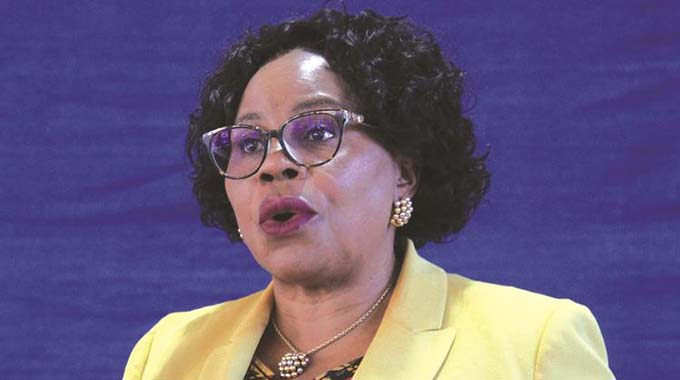RBZ launches foreign exchange auction today

Golden Sibanda
Senior Business Reporter
The Reserve Bank of Zimbabwe (RBZ)today replaces the interbank market with weekly foreign exchange auctions to determine the Zimbabwe dollar exchange rate with those in industry and commerce cautiously optimistic that the platform will enhance transparency and efficient distribution of foreign exchange.
If the new system works as expected, it would help build market confidence, improve access to foreign currency and help stabilise the exchange rate while speculative activity on the black market could subside significantly.
The Tuesday auctions are to sell the foreign currency retained by exporters which must either be used or sold within 30 days at the discretion of the exporter or be subject to compulsory sale after 30 days.
It replaces the interbank market that came into operation in February last year, but with the exchange rate then temporarily fixed at $25:US$1 in late March this year in an attempt to stabilise prices following the outbreak of Covid-19.
However, the immediate effect was a drying up of sales in the official market and a forced movement to the black market for many seeking foreign currency for legitimate imports.
RBZ governor Dr John Mangudya said last week the auction system will operate on the Reuters Forex Trading platform, a real-time electronic trading system. The weekly auctions are designed to improve transparency and efficiency in trading of forex in Zimbabwe.
Under the foreign currency auction system, bids will be submitted to, allotted and evaluated by RBZ with the offers for foreign currency while bids from buyers are submitted in the morning every Tuesday.
Successful bidders will pay what they bid, with allotments moving down from the highest bid. Invoices have to be submitted with bids to ensure the allotted currency is sued for approved imports or payment of approved services.
The weighted average will then become the ruling rate, the official rate, for the next week.
Confederation of Zimbabwe Industries (CZI) vice president Mr Joseph Gunda, said industry was highly expectant that the auction system would bring about transparency in trading of foreign currency, ensure market-led price discovery and improve availability.
“Principally, we look forward to stability so that as industry, we can be able to plan for the long term; without stability this is a chaotic situation.
“Our expectation as well is that there must be a check on money supply. We must be disciplined and the Government must not print money, otherwise it will put paid to the auction system,” Mr Gunda said.
He stressed the point that authorities should be “honest and sincere” in the way they operate the auction system by not interfering or tinkering to manipulate the system.
“The other concern is that the limits that have been set; you are aware that there is a requirement for minimum bids of US$50 000, that is a challenge. It means the discovery of the rate or price is going to be determined by big players at the exclusion of small players,” he said.
According to the Reserve Bank, the auction will only accept bids of a minimum of US$50 000 and a maximum of US$500 000 with individuals and firms required to make a single bid per week through an authorised dealer. However, the ruling rate established during the weekly auction will be the rate for smaller sales and purchases of foreign currency during the week before the next auction.
“It means whatever the big players decide goes and small players are just caught in between and we are saying no, going forward, there may be need to review that limit on the minimum bids.
“We are cautiously optimistic because we want things to work, we are complimenting Government efforts because some of the ideas that came through are our brainchild, so let us see how it turns out from tomorrow,” he said.
Zimbabwe National Chamber of Commerce chief executive Takunda Mugaga, said businesses were optimistic that if conducted properly and with little interference by authorities, the auction system will achieve the desired objectives, but pointed out that the system would expectedly experience a slow start.
“We expect it to have a slow start obviously; we are not going to be surprised by that and we do not think we should judge the auction after its first week or the next week; we need to give it a chance,” he said.
Mr Mugaga said it would not be possible for everyone who has faced challenges accessing foriegn currency to immediately start receiving it on the auction as the system needs time to develop and build stocks or accumulate capital.
The ZNCC chief executive, however, said there was need for adjustments to the auction system, especially regarding the issue of imports priority list, which he said might scare away some potential bidders or disrupt its effectiveness.
“As industry, we say we need priority to be on raw materials imports, but for people to import finished food products and other basics, which are in short supply, could be difficult.
“So, if authorities say ‘so and so’ must not get the foreign currency because they do not produce, they may cause market distortions and render the whole auction system useless.
“Authorities must also not panic over the movement of the exchange rate on the auction market because if they panic and start tampering with the rate to be affordable, the system will suffer a stillbirth,” he said.
Amid a huge appetite for imports due to constrained local production, which pushes the demand for forex, the local currency has kept depreciating against major currency, resulting in exponential price increases.
The auction will operate every Tuesday when banks will inform the central bank of the amount of foreign currency they intend to sell while authorised dealers will submit their offers.
Eddie Cross, an economist and member of the RBZ monetary policy committee said in an interview the auction will settle the highest bids first and slide down to the lowest depending on the availability of resources.
However, the central bank said bids will be settled at each bidder’s own bid rate with successful bids being allotted in full, but if funds are not enough allotment will be done on pro-rata basis.
The bank will advise the market by end of day after trading what the highest and lowest bid price were and then a midrate will be determined, which will guide trading for the next week.
A weighted average rate will be calculated based on allotments and the rate will be used as the market rate until the next auction. The ruling market rate would be used to serve importers and other users and sellers of foreign currency in between the auction days.










Comments